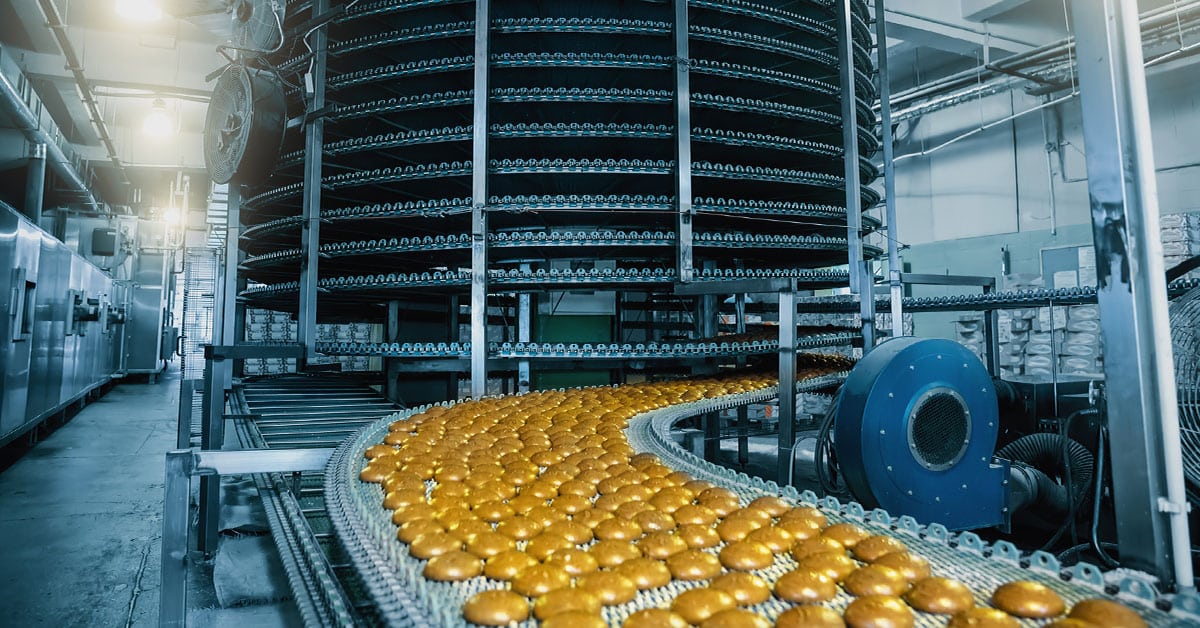Food processing involves ensuring equipment maintenance meets safety standards while keeping up with growth. New approaches like predictive maintenance can evolve your factory maintenance processes along with the changing needs of your business.
If you have anything to do with the food processing industry, you know today’s evolving consumer demands have fueled production faster than ever before. As food manufacturers attempt to meet that demand, standards such as the FDA’s Current Good Manufacturing Practices (cGMP) regulations have made food safety, product quality and food processing plant maintenance into stringent efforts. These aren’t the only food quality maintenance pressures in place. Studies show that equipment age at most food processing plants exceeds 20 years. With aging machinery and strict food safety standards, it’s clear that food processing equipment maintenance is more important than ever—the question is how to embrace it to compete in today’s competitive marketplace.
Preventative maintenance built for today
Unfortunately, many food processing equipment programs fall short of the desired prevention-based approach to food processing maintenance, instead focusing on reacting when equipment fails. And while reactive maintenance has its place in some instances, this run-to-failure strategy is ultimately costly and short-sighted in pursuit of keeping your food processing plant and machinery running efficiently and effectively.
Preventative Maintenance (PM), on the other hand, requires inspection, diagnostics, service and parts replacement according to timely and well-planned schedules. This works especially well in food manufacturing, where multiple processing lines are coupled with intermittent packaging/filling lines. As such, natural opportunities arise for effective PM on freed-up lines. There can be some drawbacks, however. For example, your staff may wind up servicing equipment that isn’t worn out or is in idle use. Meanwhile, technicians can become too distracted with preventative efforts to address urgent equipment failures.
Predictive maintenance planning for tomorrow
The latest evolution that improves on the drawbacks of preventative maintenance is Predictive Maintenance (PdM). PdM is a condition-based approach to machine reliability that identifies, measures, and earmarks factory equipment for maintenance before a failure occurs. This is accomplished through a range of innovative diagnostic and sensing technologies including ultrasound detectors, thermography and vibration analysis, among others.
Predictive maintenance is extremely effective at anticipating failures and minimizing downtime—essential in today’s fast-paced and strictly-regulated food processing environment. The digital nature of PdM means problems are addressed in various ways. Bluetooth connectivity, for example, allows technicians to monitor equipment in real-time, in order to head off issues before they impact either production or adherence to food manufacturing standards. Best of all, in addition to the positive impact on food quality and safety, facilities that implement a predictive maintenance program for food processing equipment repair quickly experience other valuable efficiencies—and even better reliability engineering—as a result.
Joining the maintenance revolution
Shifting your food processing equipment maintenance approach to predictive maintenance is not as daunting as it may seem. If you’ve already implemented some kind of preventative maintenance program, many of the same disciplines apply; in fact, if your plant is currently following a PM regimen, combining PM and PdM can often achieve the best results. It’s just a matter of determining the right mix of disciplines for your unique manufacturing situation.
To learn more about how you might begin to adopt a PdM program for food processing plant maintenance at your food processing company, download our whitepaper here or contact us today to speak to one of our factory maintenance consultants.


